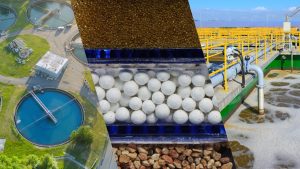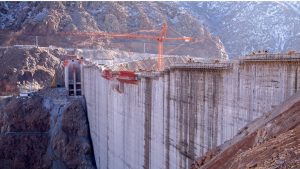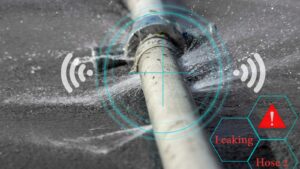Industrial pipes are everywhere around the globe. They lie in the ground beneath your feet, inside skyscrapers, and power massive plants. Yet most municipalities and industrialists have no idea how much depends on choosing the right kind. The funny thing is that the pipe that seems strong enough might crack under pressure, corrode from chemicals, or fail prematurely if matched with the wrong application. That is why industries must carefully evaluate durability, resistance, and cost before making a decision. But with so many options in the picture, how do you know what to choose?
This article lays out the main types of industrial pipes, what makes each unique, and the applications of each one.
We will uncover
What is an Industrial Pipe?
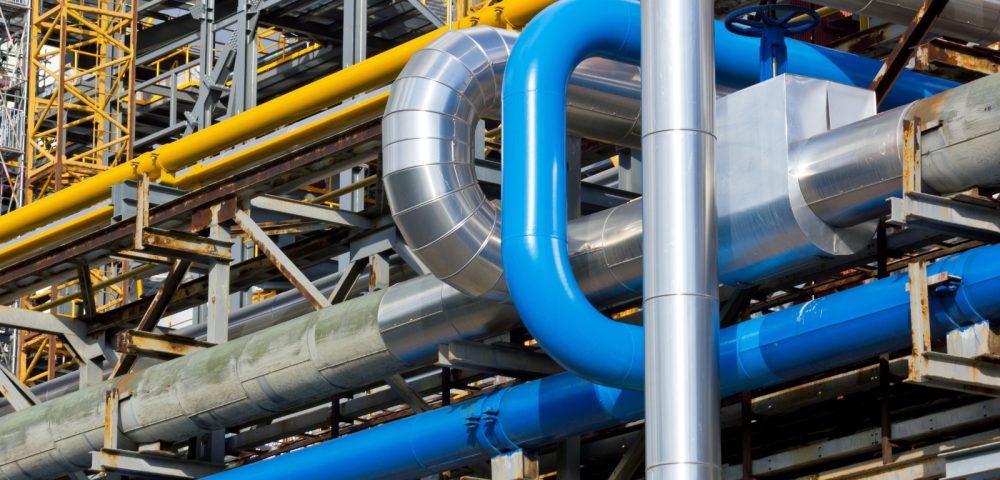
- An industrial pipe carries liquids, gases, or solids through manufacturing plants, large facilities, and infrastructure projects, which makes it an essential part of heavy-duty systems.
- Is there any difference between commercial pipes and industrial pipes? Absolutely. Unlike regular plumbing pipes, industrial pipes handle much higher pressure, extreme temperatures, and harsh chemicals without breaking down.
- This is why manufacturers design them with superior strength, excellent resistance to corrosion, and durability under constant stress.
- You can find these pipes in oil and gas fields, chemical factories, water treatment plants, construction sites, and power stations because they perform reliably in tough environments. Since different industries demand specific materials and properties, industrial pipes come in various types to suit each unique application perfectly.
Main Types of Industrial Pipes
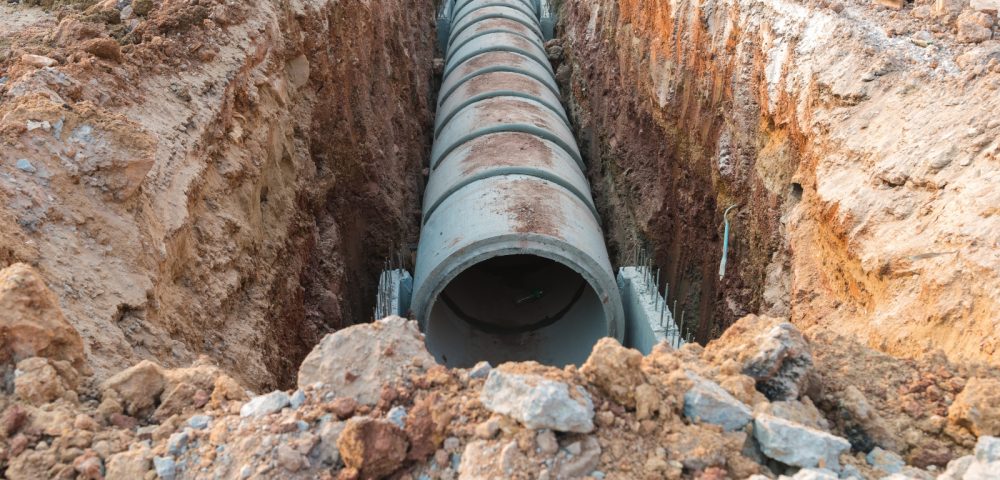
Carbon Steel Pipes
Carbon steel pipes stand out, as they offer high strength, handle intense pressure, and stay affordable compared to other materials.
They come in two main variants: seamless pipes, which have no joints and work well for high-pressure systems, and welded pipes, which suit less demanding situations.
Industries trust these pipes in oil and gas transport, chemical processing plants, and power generation because they do not buckle easily under tough conditions. Since they perform reliably in demanding environments while keeping costs manageable, engineers normally pick carbon steel when they need durability without stretching the budget too far.
Stainless Steel Pipes
This type of pipe brings impressive corrosion resistance, long-lasting performance, and hygienic properties, making it a favourite in clean environments.
They come in various grades and finishes that adapt to specific needs, whether it is a shiny surface for food contact or a rougher texture for structural uses.
Since they resist rust and keep their strength over time, industries like food and beverage processing, pharmaceuticals, and municipal water supply systems rely on them heavily. With the ability to maintain cleanliness and durability even in wet or chemical-rich environments, they prove reliable for jobs where hygiene and toughness matter equally.
Alloy Steel Pipes
These pipes pack strength and resistance into a single solution because manufacturers mix steel with elements like chromium and molybdenum to improve its properties.
They stand up to extreme temperatures and high pressures without cracking, which makes them ideal for places where heat and stress push materials to their limits.
You will find alloy steel pipes in refineries, boiler plants, and power generation facilities since they deliver dependable performance under the most punishing conditions. With their tailored strength and endurance, these pipes fill a unique role in heavy industries that need something tougher than standard steel.
Concrete Pipes
Concrete pipes deliver unmatched durability and strength, making them perfect for carrying large volumes of water or waste.
They come in two types: reinforced pipes, which include steel support for extra strength, and non-reinforced pipes for lighter-duty tasks.
As concrete holds its shape well and resists damage from soil or heavy loads above ground, industries use it widely in drainage systems, sewage lines, culverts, and irrigation channels. These pipes stay in place for decades without much maintenance, which is why engineers trust them for large-scale, long-term projects where reliability and strength cannot be compromised.
Plastic Pipes (PVC, CPVC, HDPE, PEX)
These pipes stand out for their light weight, corrosion resistance, and simple installation process, making them a popular choice in many industries.
However, different types serve different purposes. For example, PVC handles drainage and venting, CPVC withstands hot water better, HDPE suits chemical or industrial liquids, and PEX adapts to flexible plumbing needs.
These pipes work well in water supply lines, chemical transport, and wastewater systems because they do not rust or react with harsh substances. Since they combine durability with ease of handling, engineers often choose plastic pipes when they need a dependable solution that is also quick and efficient to install.
Ductile Iron Pipes
These sorts of pipes offer strength and flexibility in one package, making them much more reliable than traditional cast iron. These pipes bend slightly instead of cracking under impact, which helps them endure ground shifts or heavy loads without damage.
As we see, manufacturers tend to add protective linings to improve corrosion resistance, which extends their lifespan even in aggressive environments.
You will see ductile iron pipes in water distribution systems, sewage networks, and industrial wastewater pipelines where durability and resilience are necessary.
Their ability to handle pressure while staying tough and adaptable makes them an excellent choice for many demanding applications.
Copper Pipes
Copper pipes can conduct heat well, resist corrosion, and meet strict hygiene standards, making them indispensable in certain industries. Their excellent thermal conductivity makes them perfect for heating and cooling systems, while their ability to maintain cleanliness fits the needs of hospitals and food production facilities.
Since copper lasts a long time and does not contaminate water or fluids, industries use it widely in HVAC systems, plumbing for medical buildings, and food processing plants.
Thanks to its unique balance of strength, cleanliness, and efficiency, copper remains a trusted material where cleanliness and performance go hand in hand.
How to Choose the Right Industrial Pipe
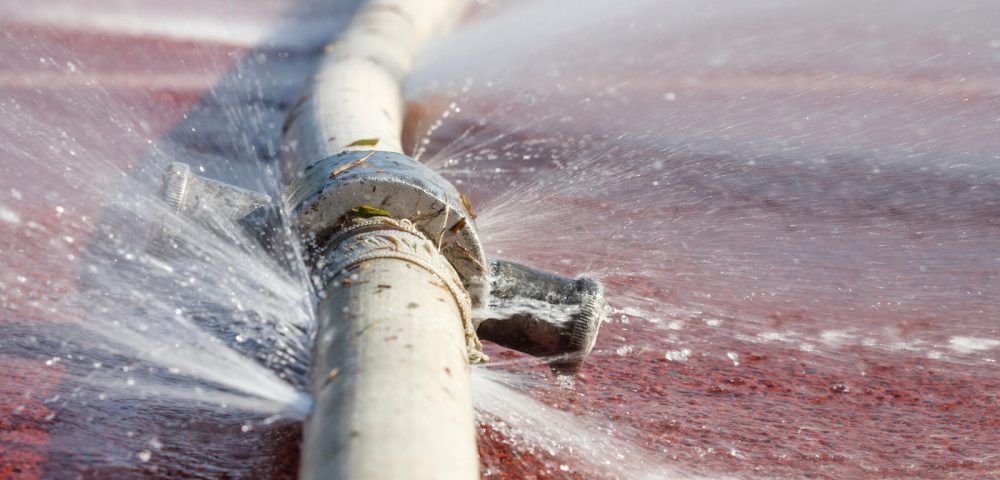
Fluid Type
You need to know exactly what fluid the pipe will carry since each material reacts differently to liquids, gases, or chemicals. Some pipes resist acids, while others handle hot steam or drinking water better. Always match the pipe material to the fluid to prevent leaks, corrosion, or contamination down the line.
Pressure and Temperature
You should always check the pressure and temperature the system will face because not all pipes handle intense heat or high pressure the same way. Some metals and plastics withstand extreme conditions, while others deform or crack. If you choose the right pipe, it will ensure the system stays safe and runs without unexpected failures.
Environmental Conditions
You have to consider where the pipe will sit because weather, soil, or chemicals in the air can damage certain materials. Outdoor pipes may need UV resistance, while underground ones might need protection from moisture or shifting soil.
Budget
You need to balance cost with performance because prices can vary widely depending on material, size, and durability. While cheaper pipes save money now, they might fail sooner and cost more in repairs. Choosing wisely within your budget helps you get dependable performance without spending unnecessarily on features you do not need.
Consulting Standards (ASTM, ANSI, ISO)
You should always follow recognised standards like ASTM, ANSI, or ISO because they set clear guidelines for quality, safety, and performance. These standards help you pick pipes that meet industry rules and work properly. This way, you do not end up with unreliable materials or costly problems later.
Ensure Your Industrial Pipeline is Safe with an IoT Sensor Network

It is a certain fact that every industrial pipe choice shapes the future of your plant. With the right choice, you will have safer workdays, faster operations, and money saved. Don’t let mere predictions ruin it when you can get your pipes inspected with IoT sensors that never sleep. A smart mechanical asset monitoring solution will keep your pipelines healthy 24/7. Why stop at good enough when you can watch, analyse, and act instantly? Make your pipes intelligent with an industry expert today.


